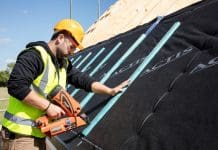Most smart meters tell households how much energy they’ve used but do nothing to help them actually reduce that use. A new project led by Professor David Coley of the University of Bath aims to make smart meters smarter by providing practical advice on cutting consumption
The official UK smart meter network was switched on in November 2016 and since then smart meter devices have been installed in millions of homes across the UK. The government wants one in every household by 2020, which will cost several billion pounds to achieve. The question is, are they using the right technology or something way out of date?
A typical smart meter isn’t so smart; it simply shows the amount of energy you are currently using and how much you have used over the past week. This will be presented in energy and money units. And that’s about it. The device will not tell you what this energy is being used for or what actions you might take to reduce it. One thing it certainly doesn’t try and do is make you understand your energy consumption. A team of engineers and psychologists led by Professor David Coley at the University of Bath, in partnership with Exeter City Council, has spent the last three years designing a meter to do just that.
 The device, named ibert, monitors your gas and electricity consumption and the temperature in your home then offers advice in plain English sentences sent to your phone. Some of these are simple statements of fact, much like a normal smart meter; others go far deeper. For example: “I notice that your heating system turns off at 10am each morning, yet the house would seem to be unoccupied from 8am. Resetting the time clock might save you £89 per annum”.
The device, named ibert, monitors your gas and electricity consumption and the temperature in your home then offers advice in plain English sentences sent to your phone. Some of these are simple statements of fact, much like a normal smart meter; others go far deeper. For example: “I notice that your heating system turns off at 10am each morning, yet the house would seem to be unoccupied from 8am. Resetting the time clock might save you £89 per annum”.
The first sentence in this example is potentially useful, but might well not engender change. The second sentence is the clever bit, in that it gives a direct personal message. The message really is personal; it is not based on typical rates of heat loss from UK homes but on a mathematical model of the house in question, which the device generates for itself – including a prediction of what the home is made of.
This model is very similar to the thermal model used by engineers when designing a large commercial building, expect rather than the engineer entering the dimensions and constructions of the building, the device uses the data from its sensors and a lot of mathematics to reverse engineer the model.
The team tested the device in 47 homes and achieved an unprecedented 22% saving in gas consumption. In addition, a survey showed the occupants became better consumers of energy by being more educated about where energy was being wasted in their homes. It can even spot if windows have been left open far beyond that needed to provide good air quality, and tell you how much it is costing you to leave them open.
The researchers concluded that the whole smart metering project needs to be changed and technologies introduced that work with consumers, use up-to-date technology and a dash of psychology. The findings of this study have been published in Building & Environment and was part of the ENLITEN project, funded by the Engineering & Physical Sciences Research Council (EPSRC). The team’s most recent paper from the work ‘How smart do smart meters need to be?’ can be accessed at http://www.sciencedirect.com/science/article/pii/S0360132317304225
Prof David Coley
Professor of Low Carbon Design and Head of the
Centre for Energy and the Design of Environments
University of Bath
Tel: +44 (0)1225 385531
www.bath.ac.uk/ace/research/eden/
Twitter: @UniofBath














